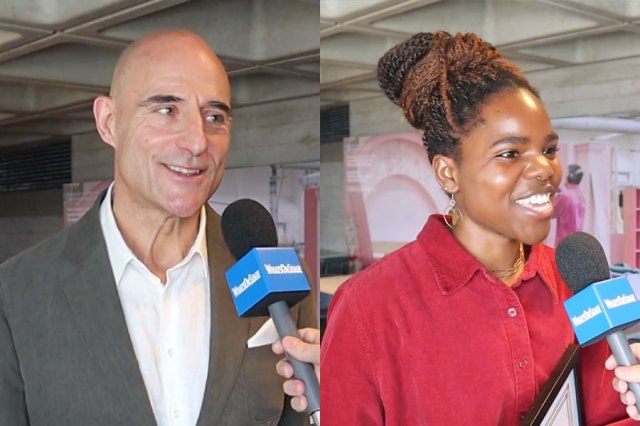Blue/Orange (Sheffield & tour)
Joe Penhall’s Blue/Orange, given a pitch-perfect production by Kathy Burke, alternately – even simultaneously – disturbs and amuses as it uses a slender story-line to examine issues of racism, the nature of power and the state of the National Health Service, but perhaps most of all the self-deception that separates thoughts and words.
Christopher, a young black man suffering from borderline personality disorder, is about to leave hospital. Bruce, the junior doctor on Christopher’s case, opposes his discharge, using terms like schizophrenia and paranoia to describe his illness. But Bruce receives no support from senior consultant Robert. The decision about Christopher’s future is the central plotline of the play, but it sweeps along with it a series of professional, personal and ethical conflicts between the doctors, ruining careers and reputations en route.
“You know what I mean?” punctuates the rhythm of Christopher’s speech. It’s not only a conversational prop but a serious question in a play where what characters mean and what they claim to mean often conflict. Christopher’s delusion that an orange is blue is highlighted in the title. Is it any more delusional than Bruce’s belief that “we don’t use” old-fashioned, potentially insulting terms for mental illness any more? Ultimately, Bruce’s politically correct defences are breached in a tirade of his own prejudices. Robert, urbanely post-colonial, is blithely unaware of his casual racism and claims to do good in the world when, in reality, he’s preoccupied with freeing up beds, using patients for research and gaining a professorship.
In Jimmy Akingbola’s striking performance, Christopher emerges at times as the sanest of the three characters. “Pull yourself together”, he advises Robert solicitously. Swinging from hyperactive glee to lonely terror at the prospect of release and mixing self-congratulatory cunning with blankly perverse obstinacy, Akingbola superbly draws together the contradictory threads of this complex character.
As the figures of so-called authority, Roger Lloyd Pack’s consultant conceals ambition and self-regard beneath a veneer of detachment – and nobody does deadpan better – while Shaun Evans finds Bruce’s gaucheness from the start and successfully deflects sympathy from a character who seems at one point to be turning into our victim-hero.
Paul Wills’ set design is suitably stark, though the open spaces of the Crucible stage pose something of a problem for a play that began life at the National’s intimate Cottesloe Theatre. Kathy Burke’s direction, so sure in characterisation, pace and mood, does sometimes leave two characters stranded upstage, distanced from an audience eager to be involved in their conflict of ideas.
– Ron Simpson (reviewed at Sheffield Crucible ahead of a UK tour)












